Crowds of people smiling and wiping away tears filled the street outside the Stonewall Inn in New York City’s Greenwich Village on Friday, celebrating the Supreme Court’s landmark gay marriage ruling and marveling at how much has changed in the past 50 years.
The historic gay bar, which was just granted landmark status this week, was the site of riots in 1969 against police raids, protests that were credited with catalyzing the gay rights movement. On Friday, throngs of couples, families and tourists—gay and straight, young and old—all flocked to that site to pay tribute to the early gay rights pioneers and rejoice in the Supreme Court decision that effectively legalized same-sex marriage across all 50 states.
Mary O’Shaughnessy, 52, a gay IT manager from New York, recalled the years surrounding the Stonewall riots as a time of secrecy, and remembered two of her neighbors in particular, a pair of women who had been nurses in World War II and lived together in the 1960s.
Choking back tears, she said, “I hope that couples like them [are] looking down from wherever they are and enjoying.”
For many who gathered outside the Stonewall Inn, Friday brought a moment they had never envisioned in their lifetime.
Silent No More: Early Days in the Fight for Gay Rights
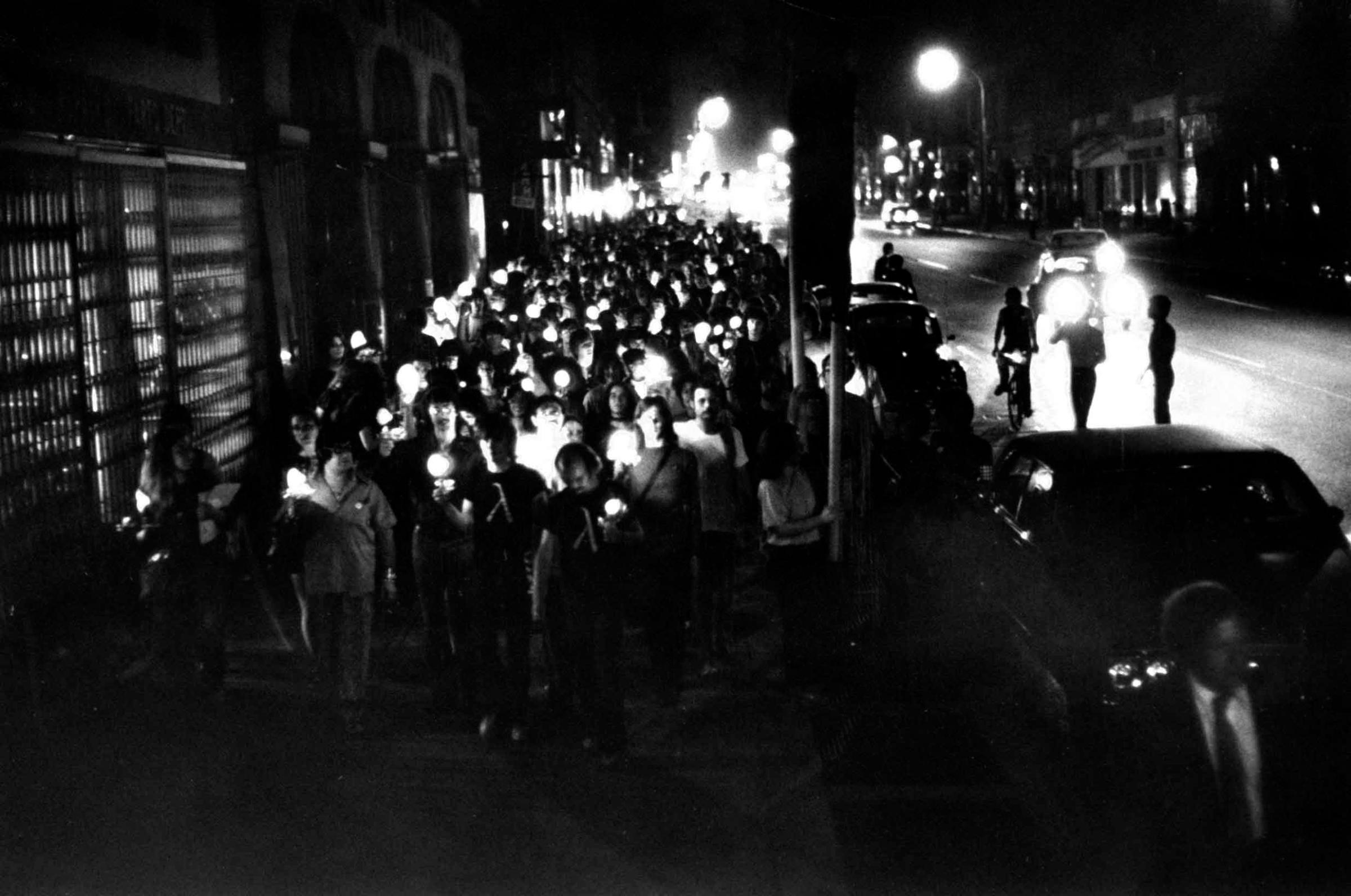
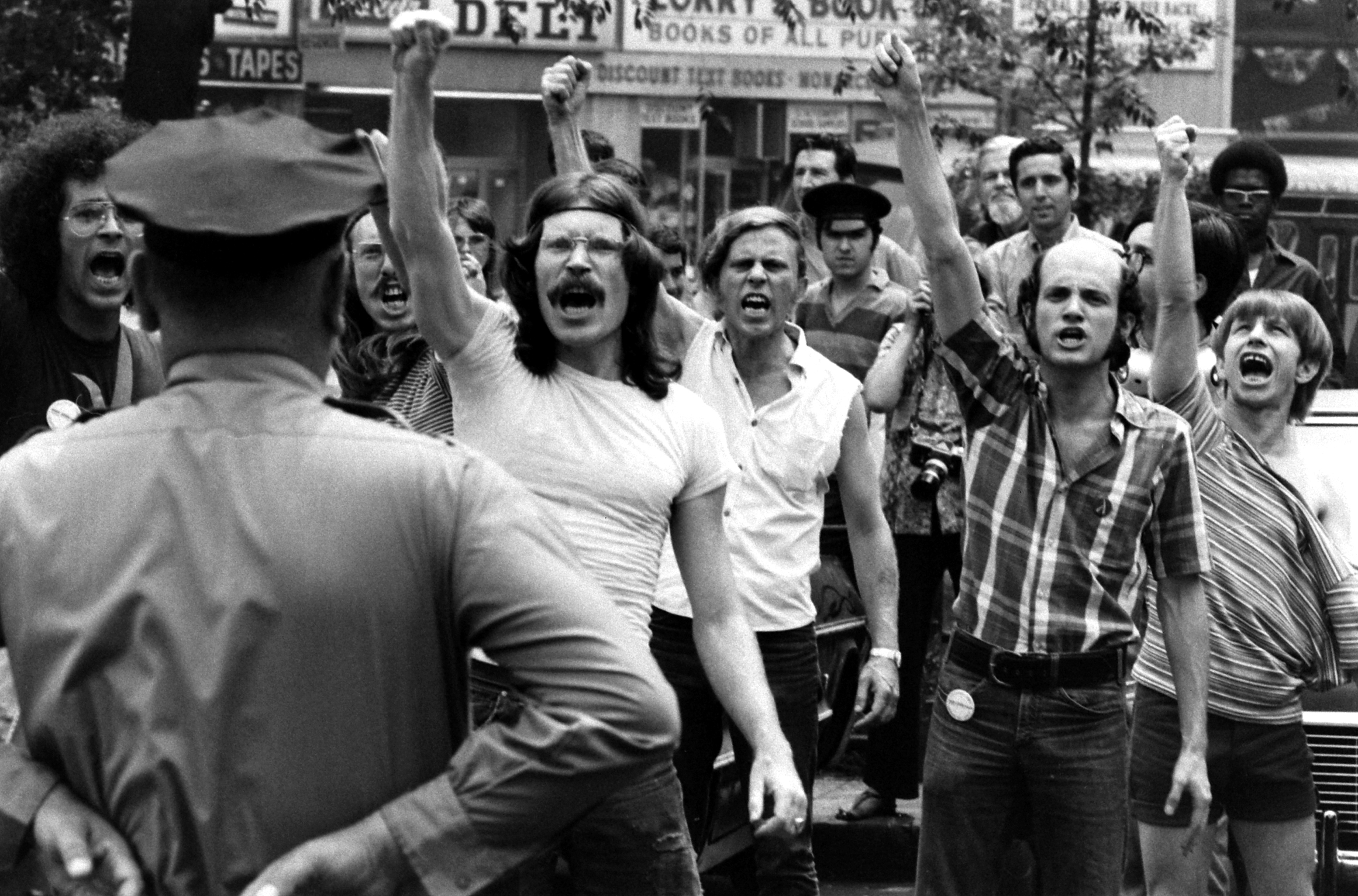
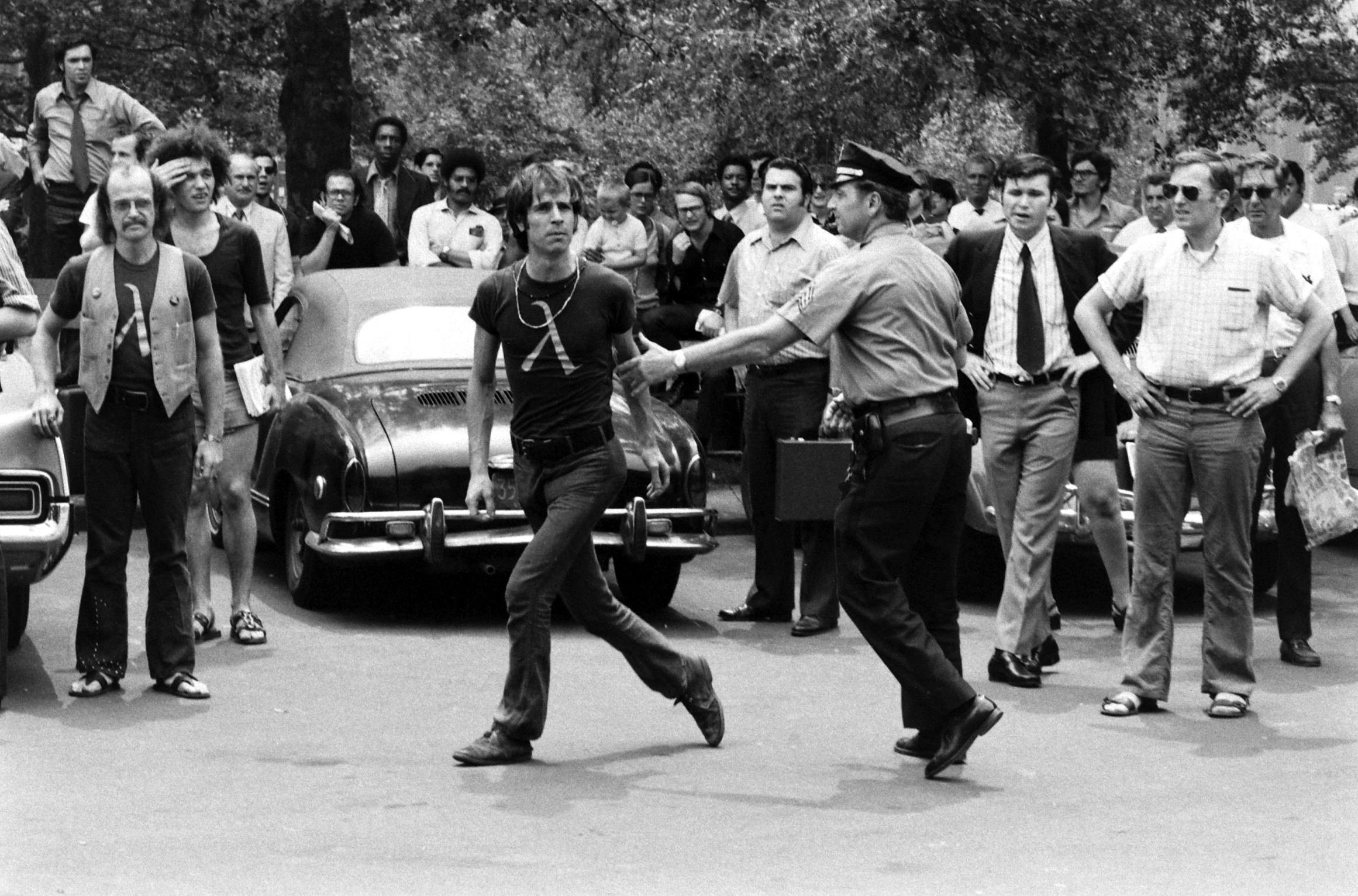
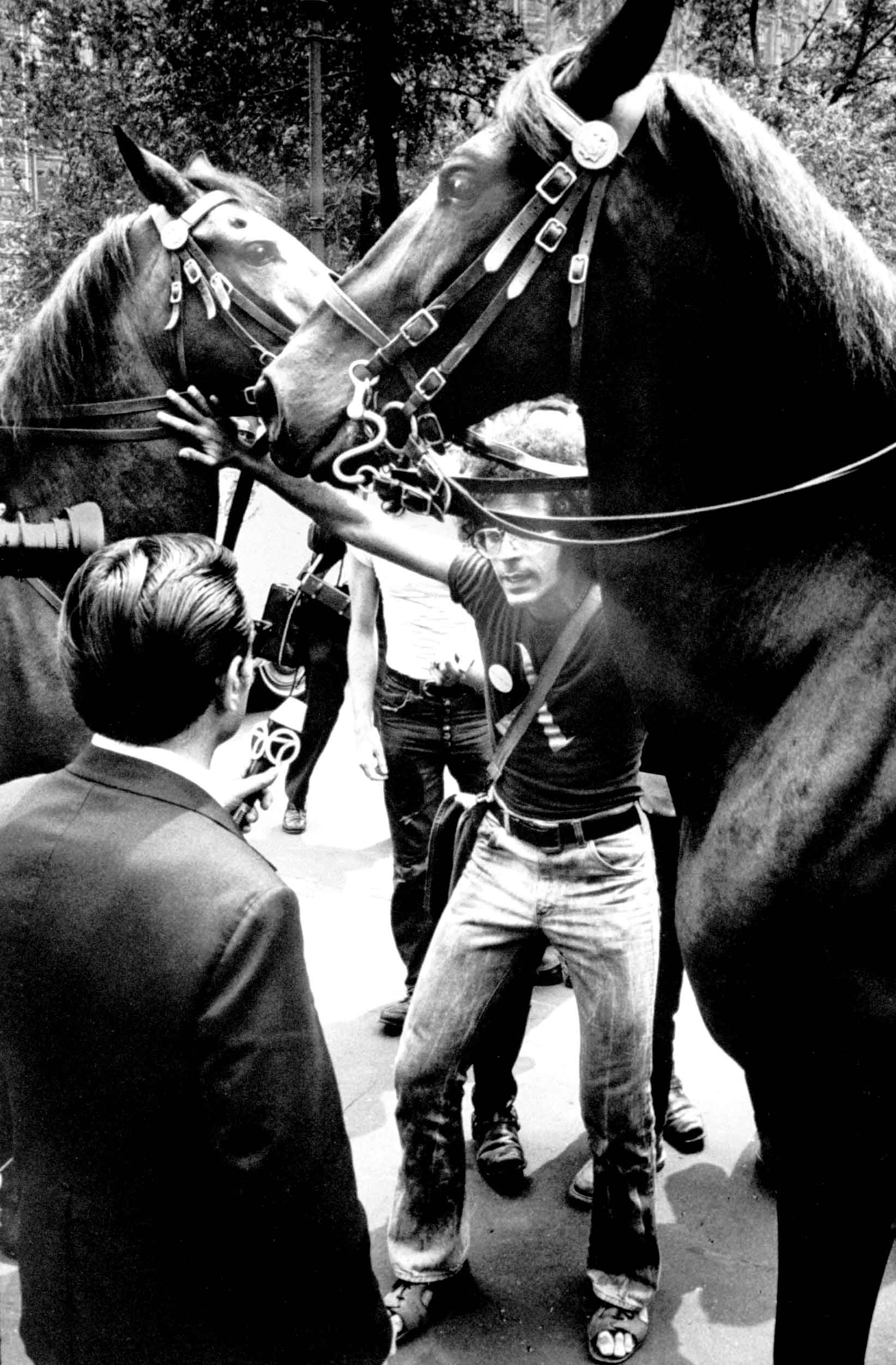
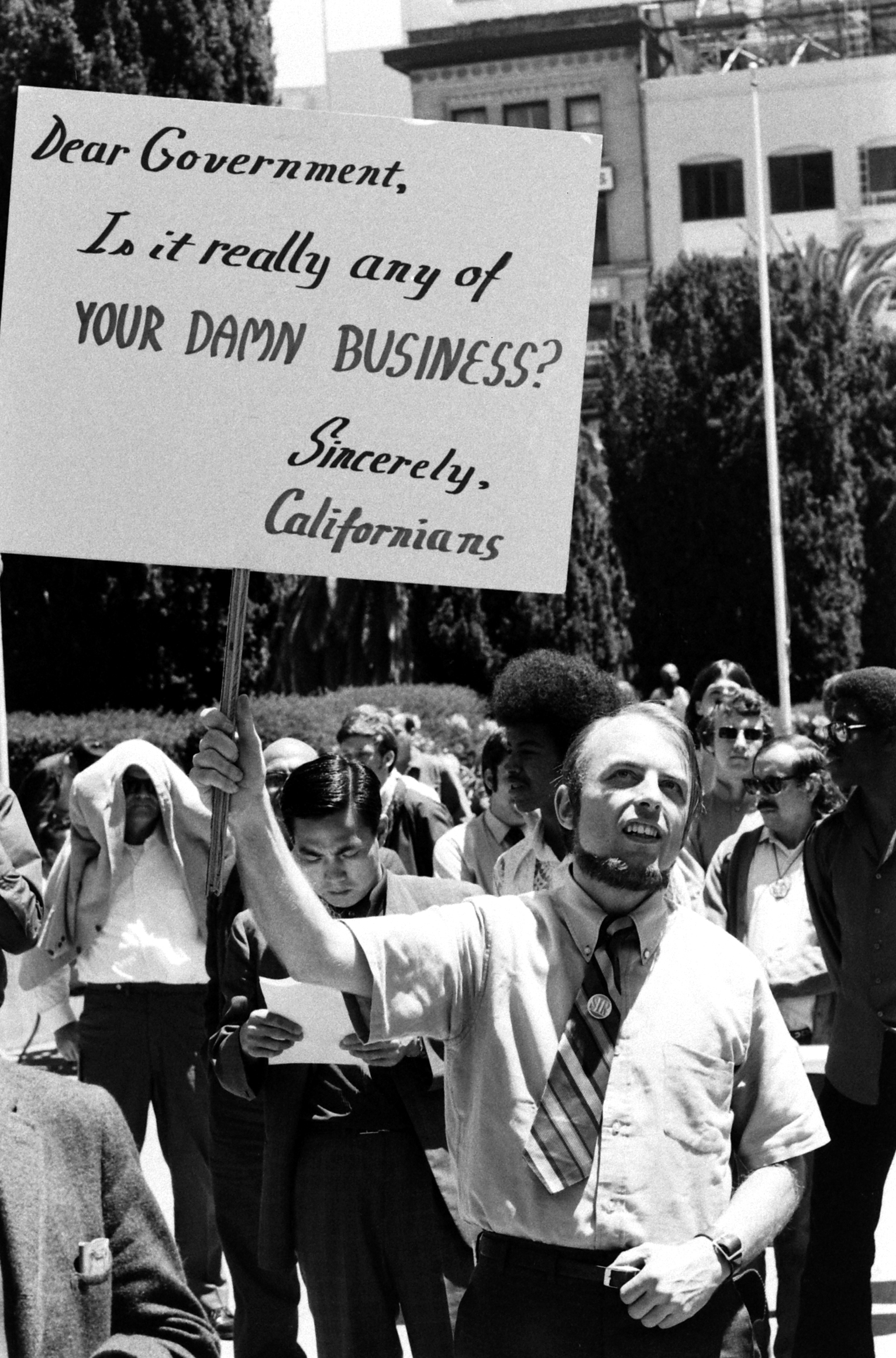
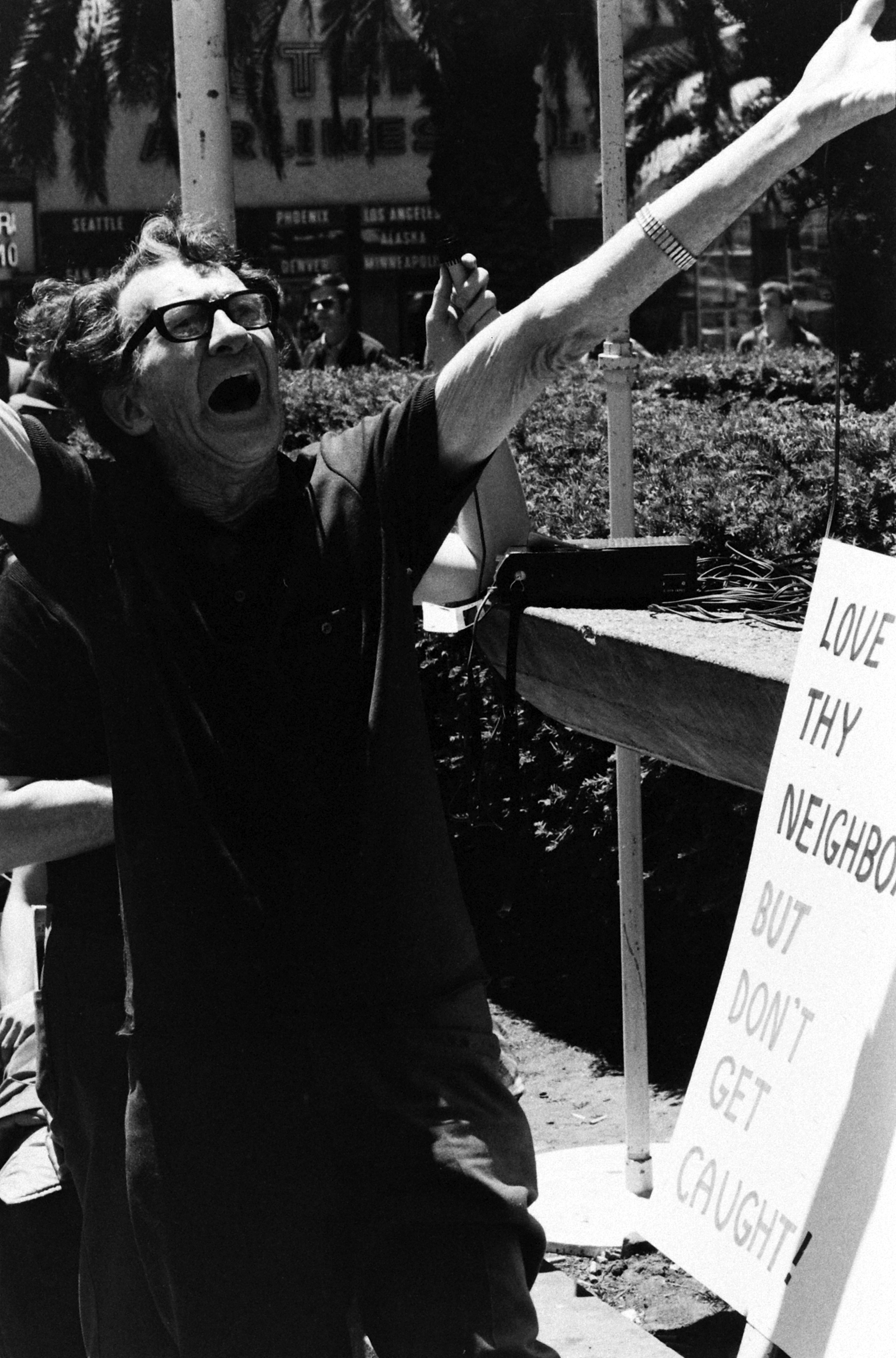
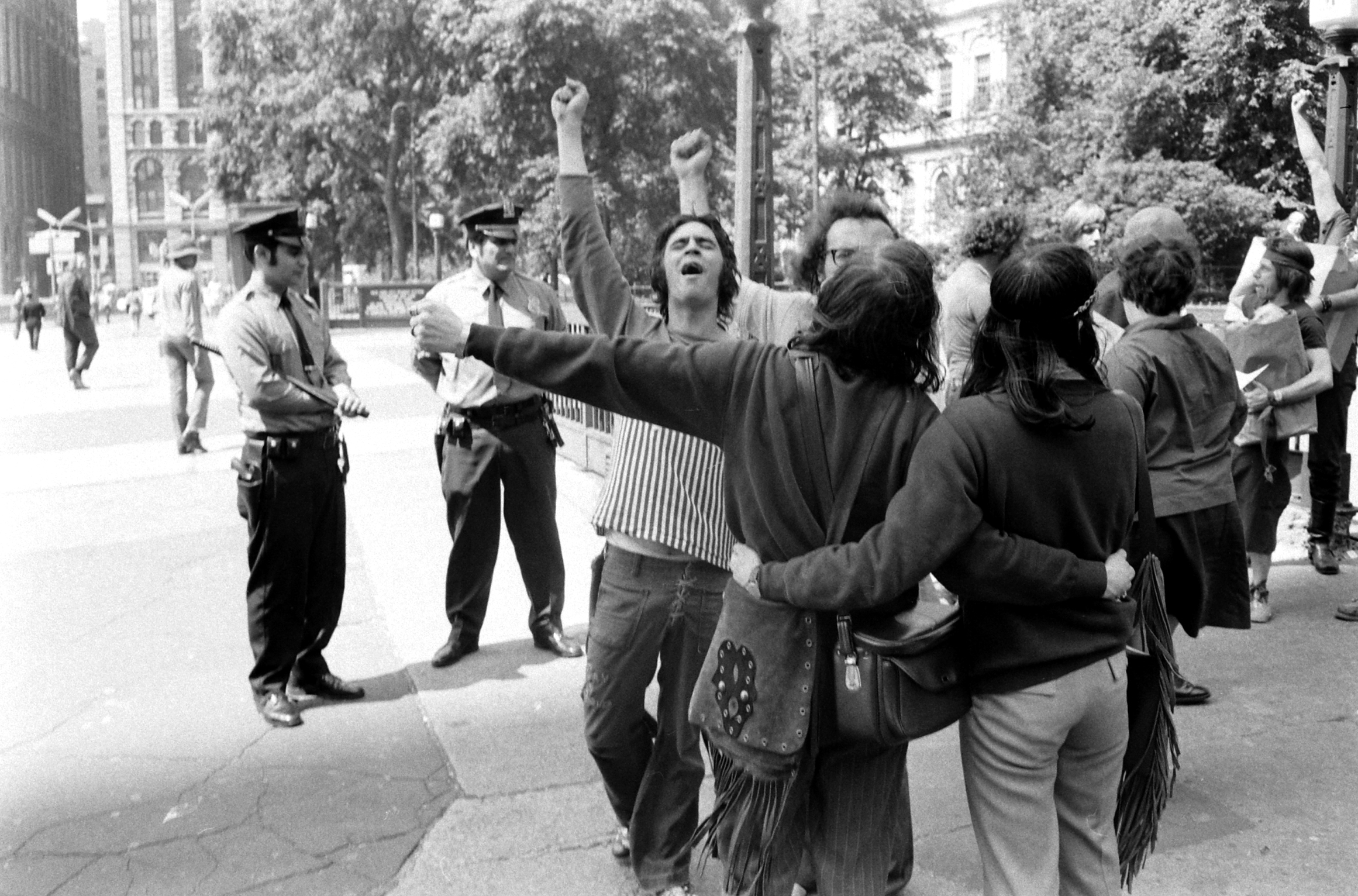
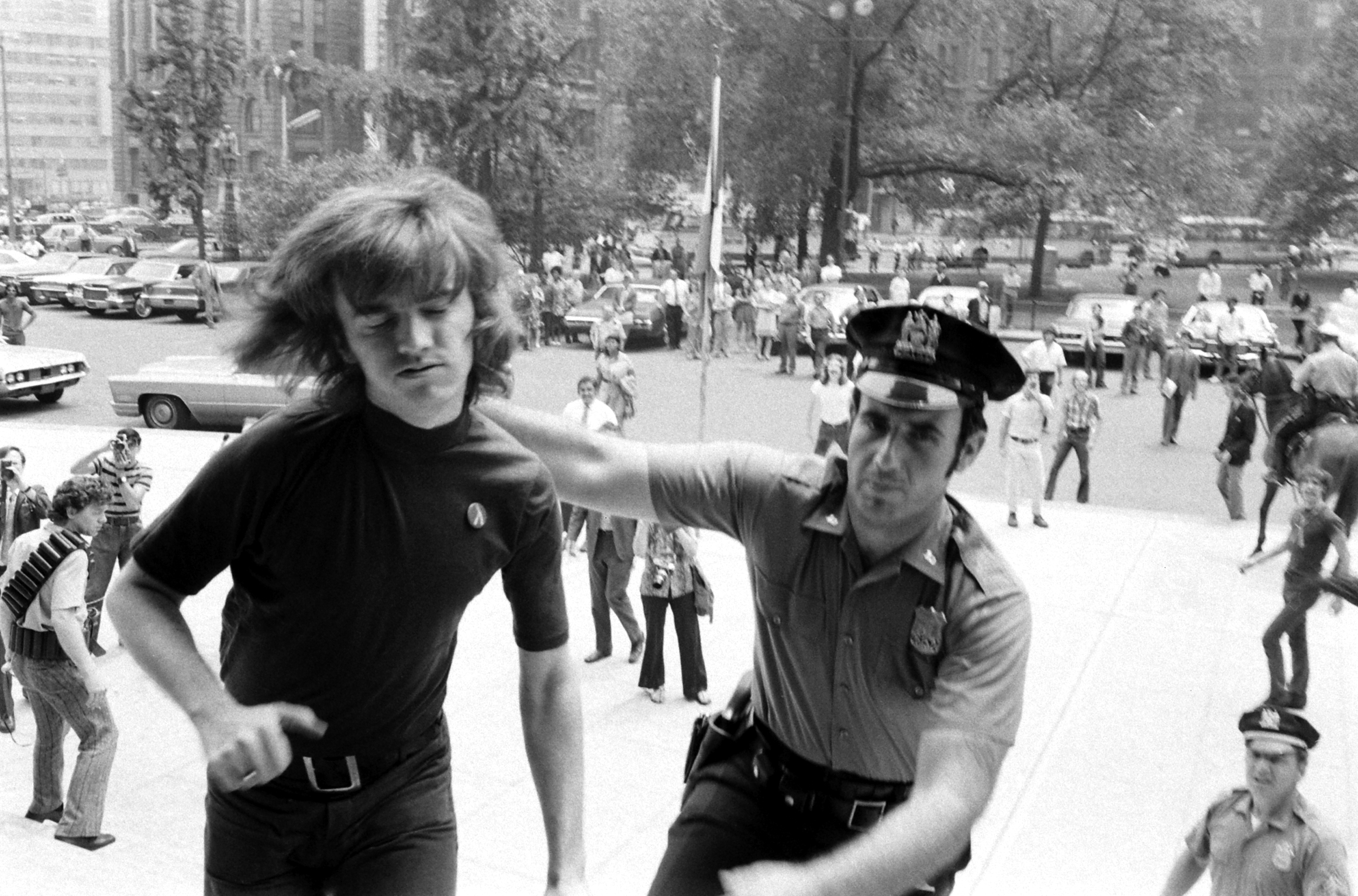
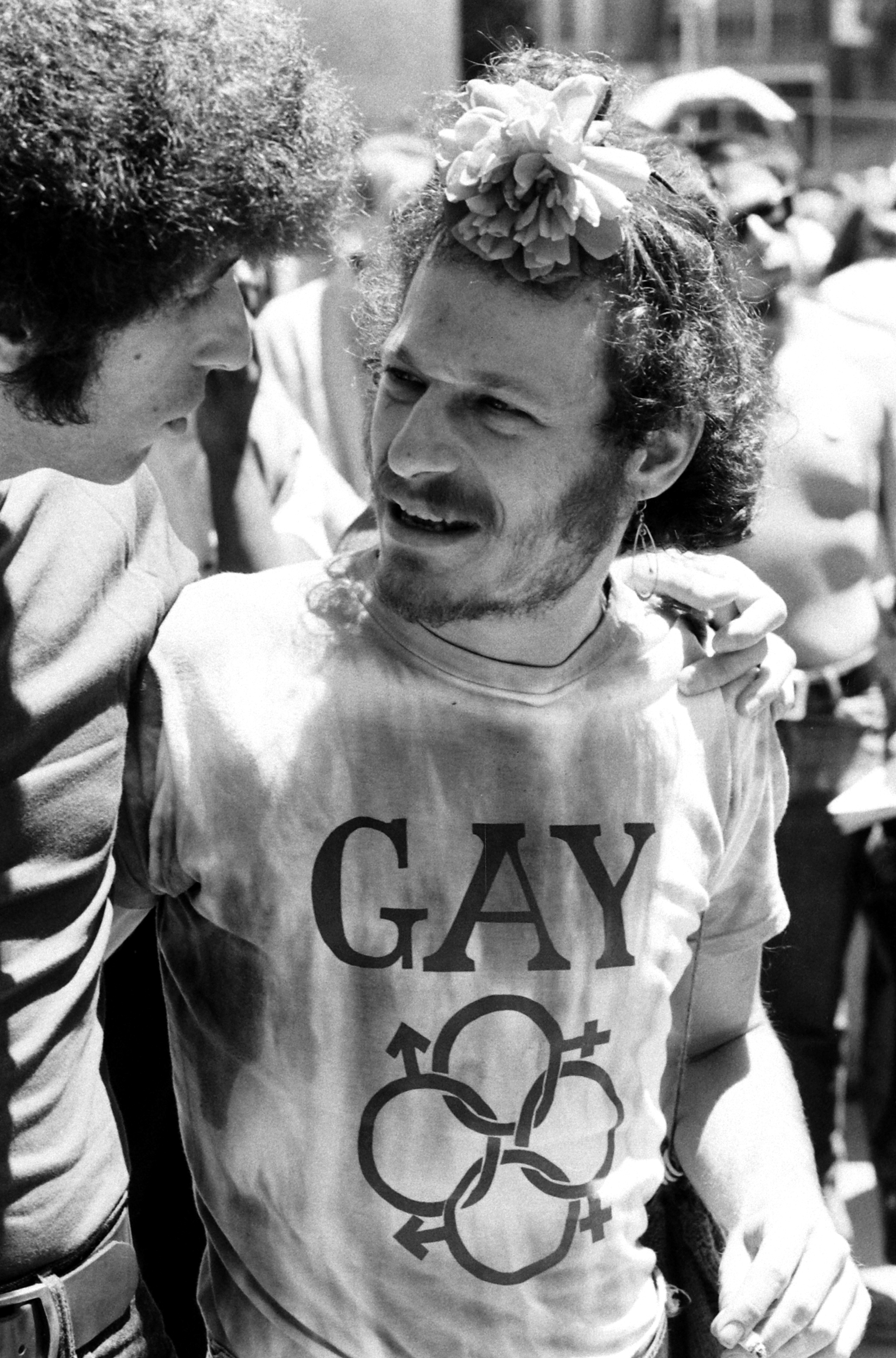
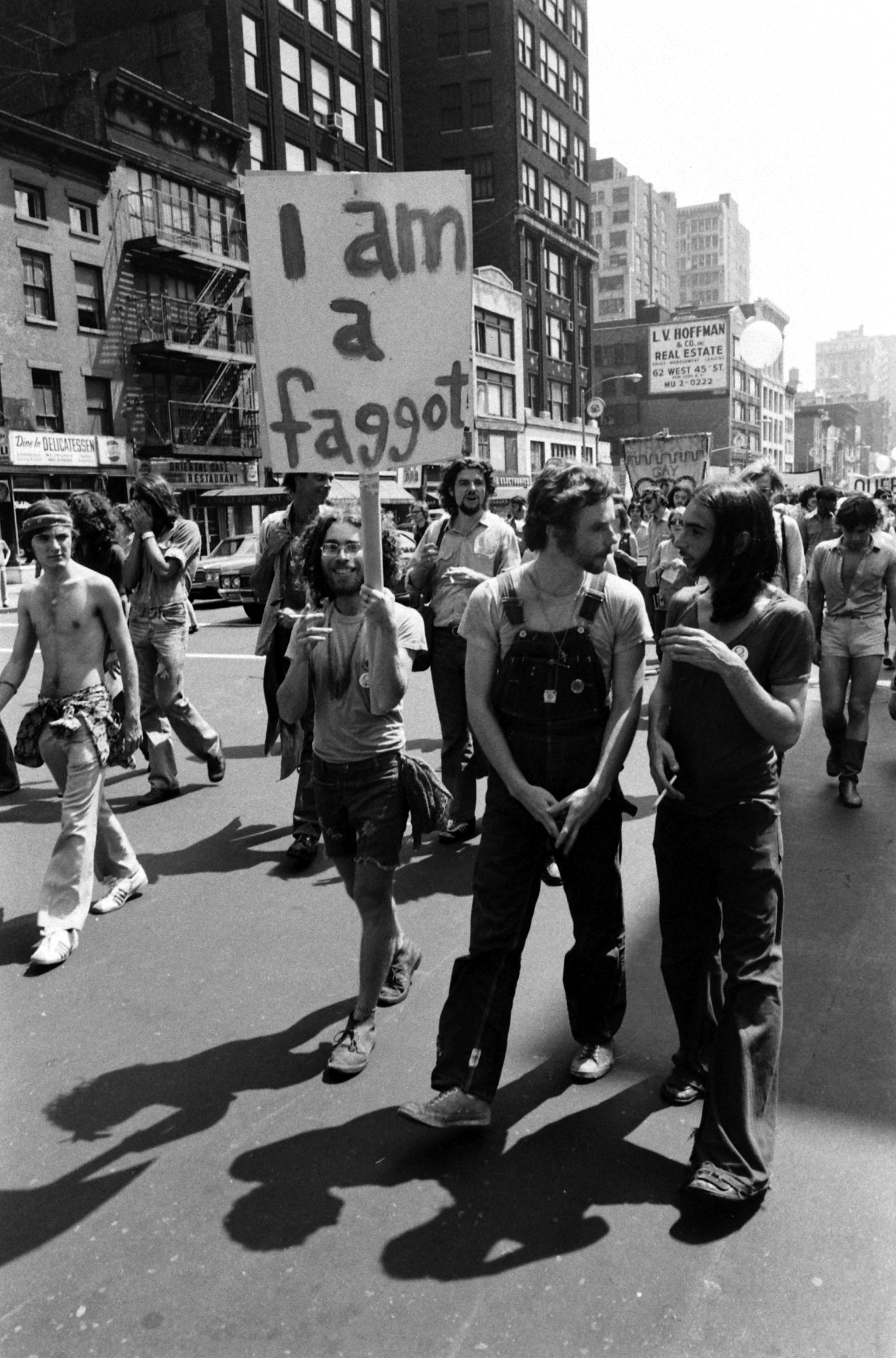
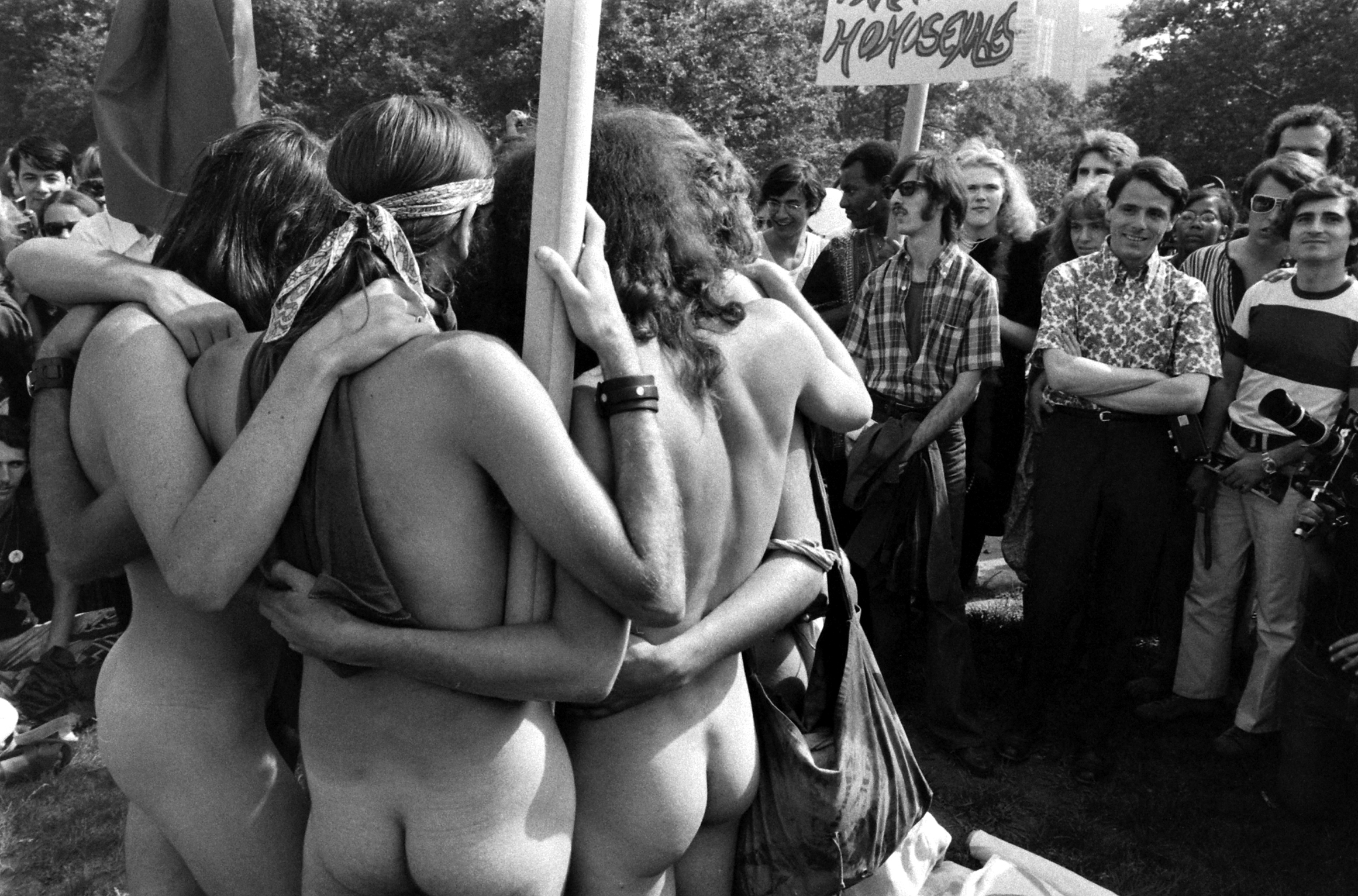
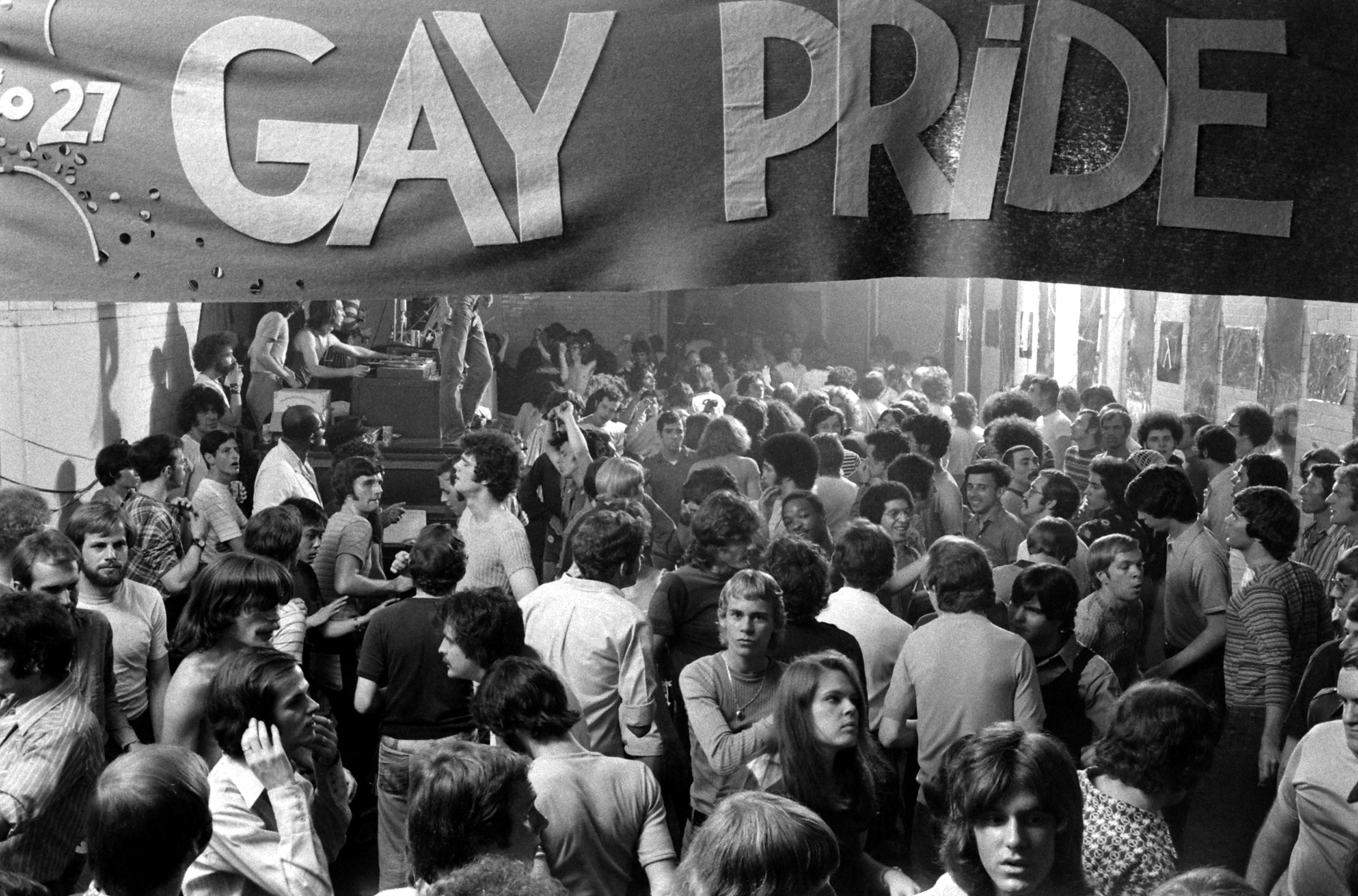
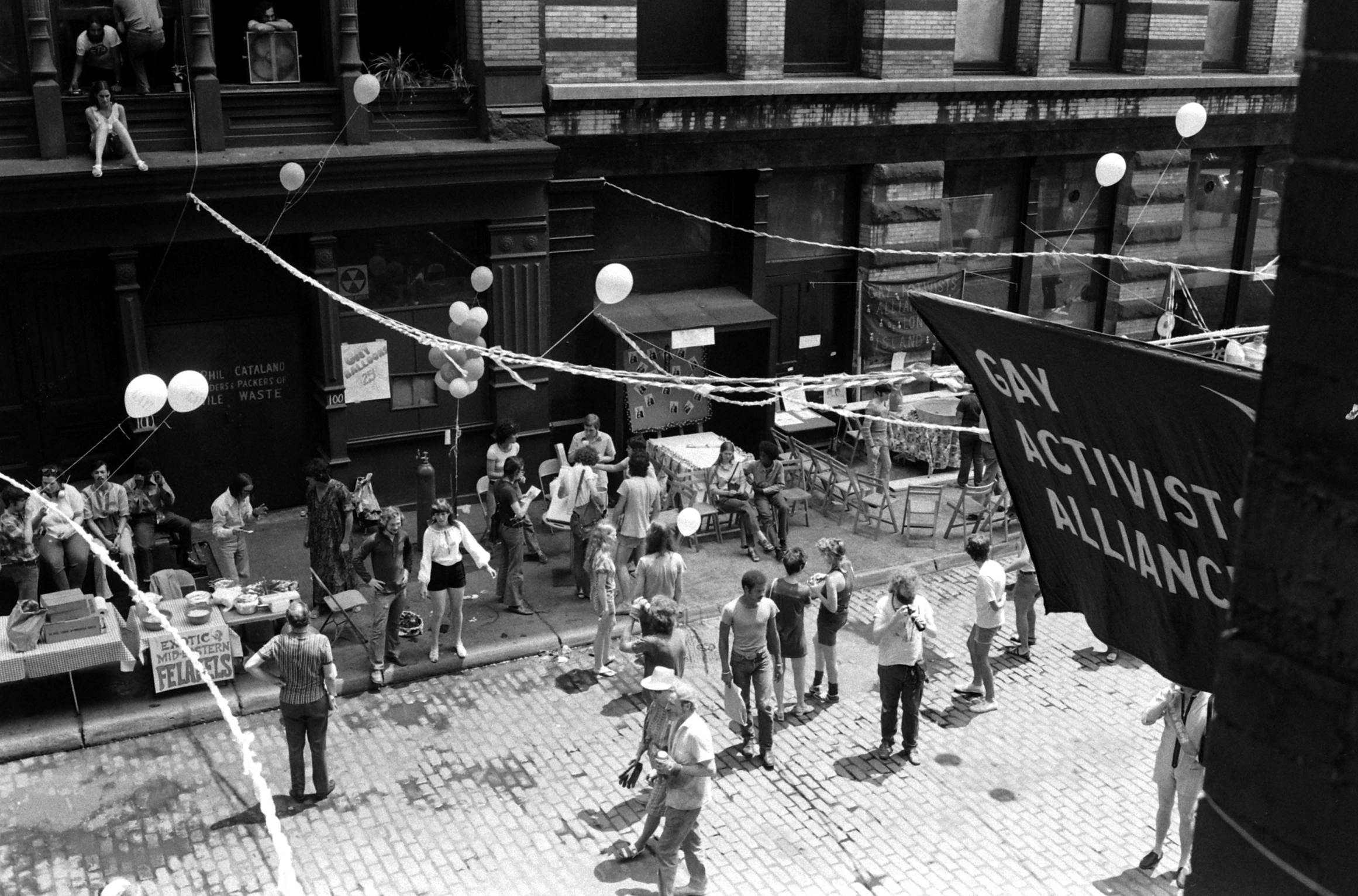
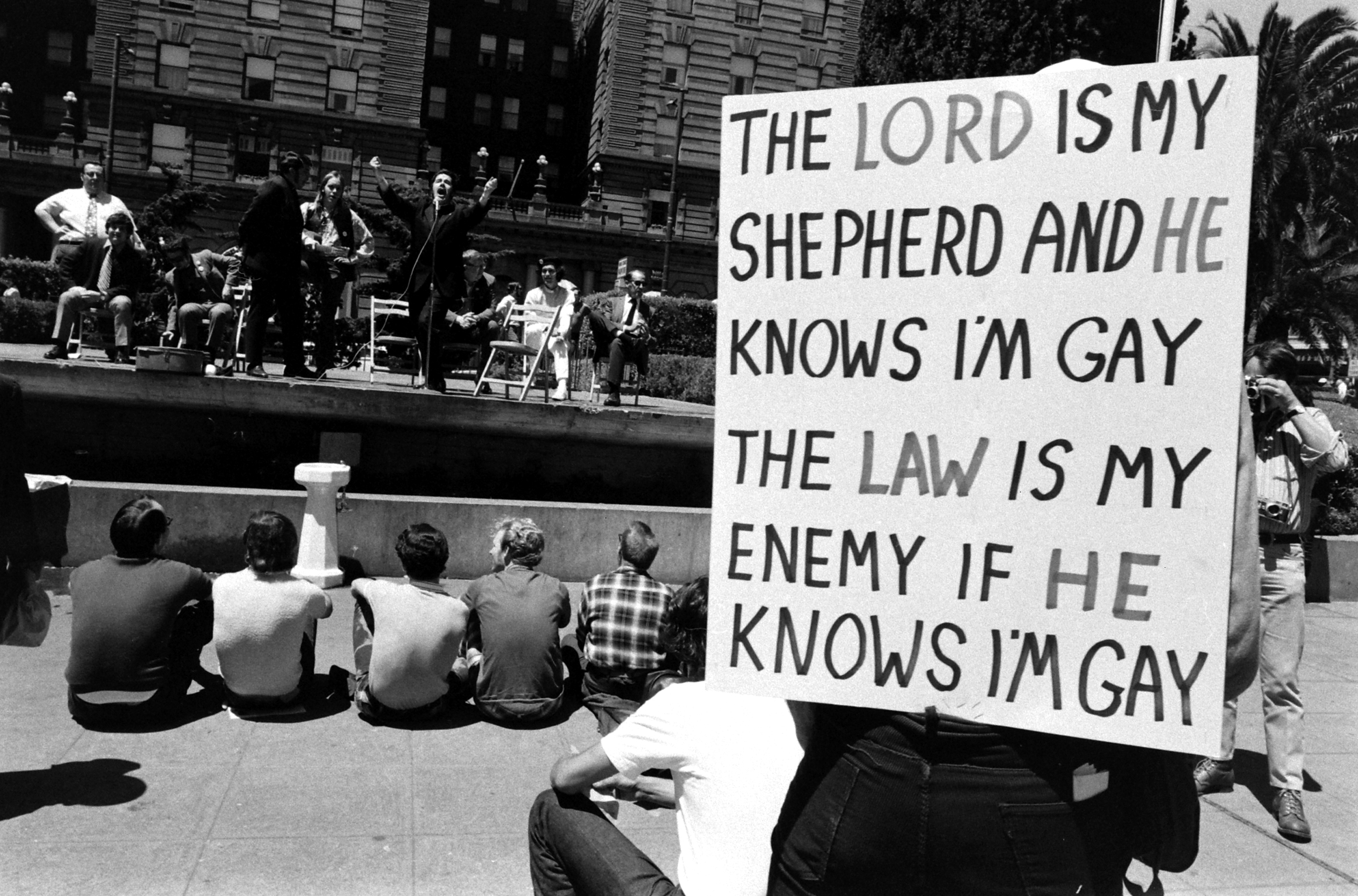
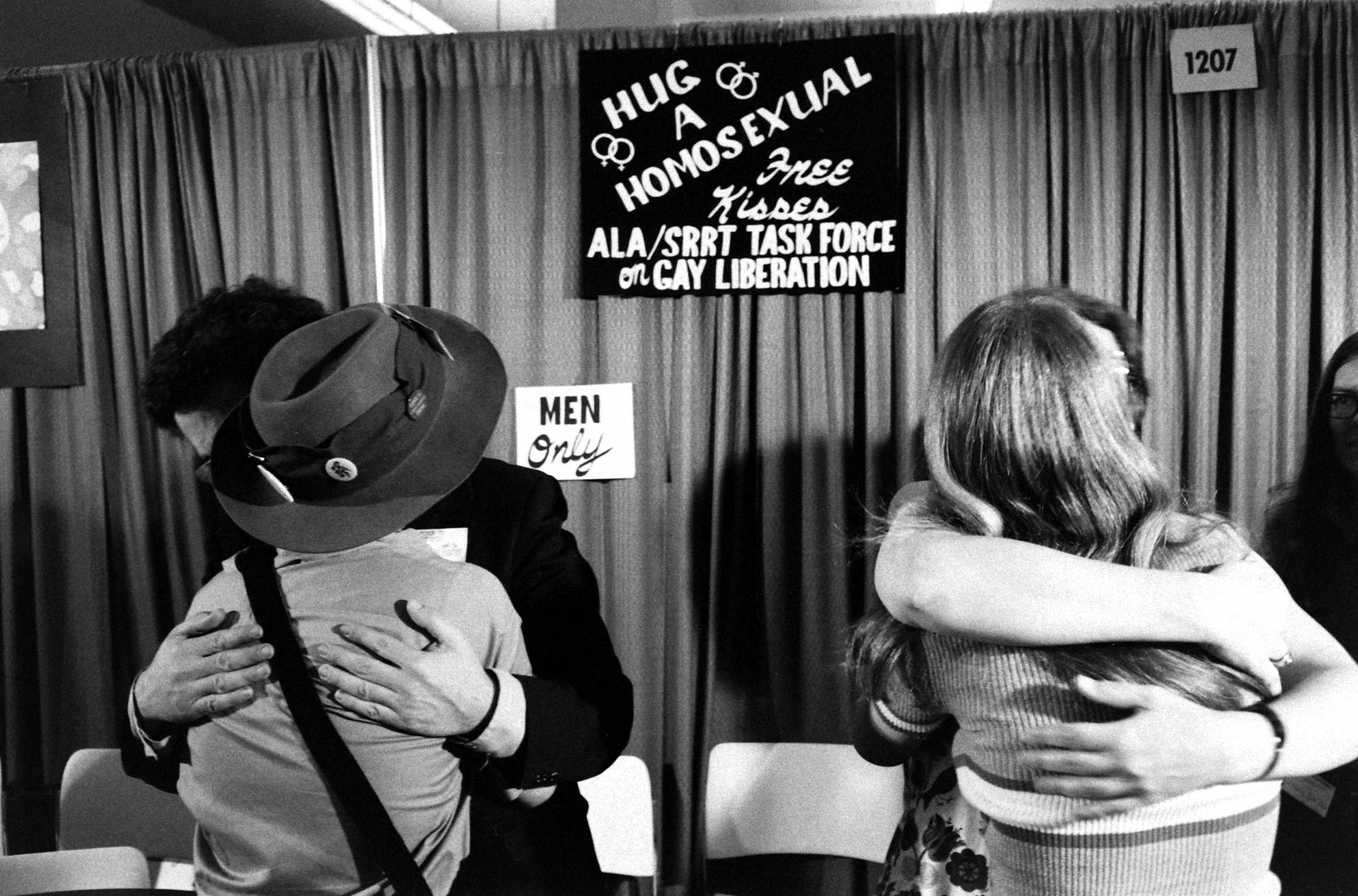
Jeff Mead, a middle school English teacher from San Francisco, and Peter Born, an engineer, were married in California in 2008, in the short window between when the state legalized same-sex marriage and when Proposition 8, a state constitutional amendment, banned it.
“When I graduated from high school–Catholic high school–in 1983, I didn’t even think that this would ever be on the map,” Mead, 50, said.
“It’s a big change,” Born agreed, grabbing Mead’s hand. “Especially for guys our age, who have come through the AIDS crisis and are still here. We’re excited and proud to be gay and be gay Americans and to be married as a gay couple after so many years together.”
Mead and Born, who have been together for 28 years, stood across from the Stonewall Inn at the edge of Christopher Park, watching people stream onto Christopher Street. A garbage truck passed, tooting its horn three times as a sign of support, as people ran behind it cheering.
Although same-sex marriage was legal in 37 states and Washington D.C. before the ruling, Obergefell v. Hodges, the landmark case gave many gay people stability previously afforded only to straight couples.
Dana Stallard, 29, a social worker and Cynthia Stallard, 30, a lawyer, married four years ago in New York, right after the state legalized same-sex marriage. For them, this provides them the security to start a family.
“If we travel to other states, we’ll be protected,” Cynthia said. “[We’ll] be able to tell our kids that no matter where we are, they don’t have to worry about who their moms are. And that a state won’t tell them that we’re not both their parents.”
Lara Finkbeiner, 29, a lawyer from California, is getting married in Michigan in September.
“This means I get to have a legal wedding,” she said, pausing to compose herself. “Which is pretty incredible.”
But she added that the decision is not the final step in the gay rights movement.
“I hope we are able to parlay this into doing more systemic reform to uplift our entire community because there is still a lot of violence that people are facing every day,” she said. “We need to do a better job of incorporating other members of our community [and] uplifting transgender voices.”
Inside the bar, toast followed toast as the crowd raised glasses to celebrate the ruling. Among them was Laurence Frommer, who works with homeless queer youth in Greenwich Village and said he was “elated.”
“Now somewhere in this crowd there must be a husband,” Frommer, 51, joked.
But he then turned serious, noting that the ability to celebrate in public was a privilege not everyone in the country enjoyed.
“I’m worried about the backlash in some parts of this country. Our sisters and brothers are in places where they might be subject to retaliation,” he said.
But, still, for those congregated outside Stonewall on Friday, it was an overwhelmingly happy day.
“I think it’s important to take a moment and appreciate what we have here,” Harold Levine, 58, said.
See Scenes of Celebration After Supreme Court Gay Marriage Ruling
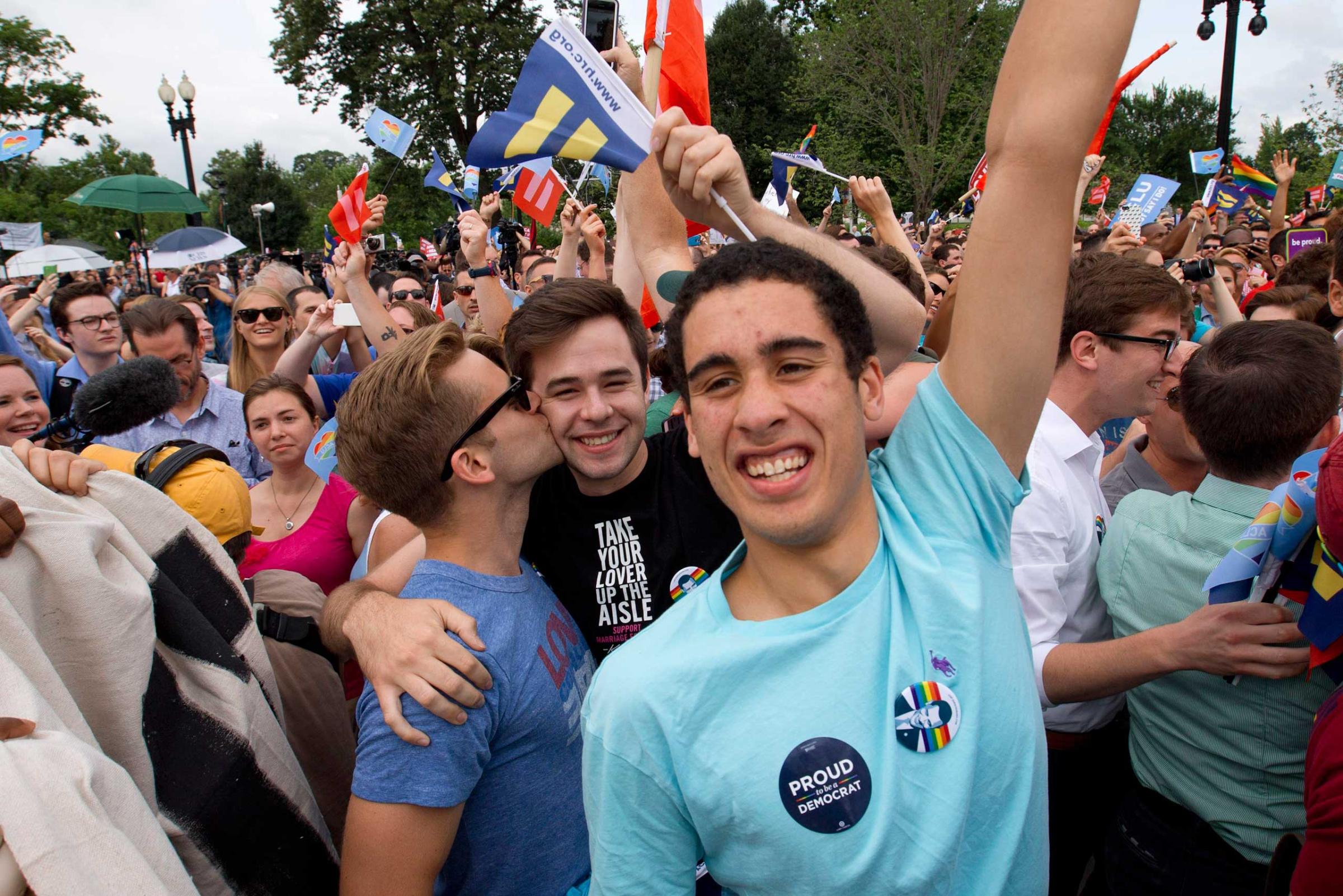
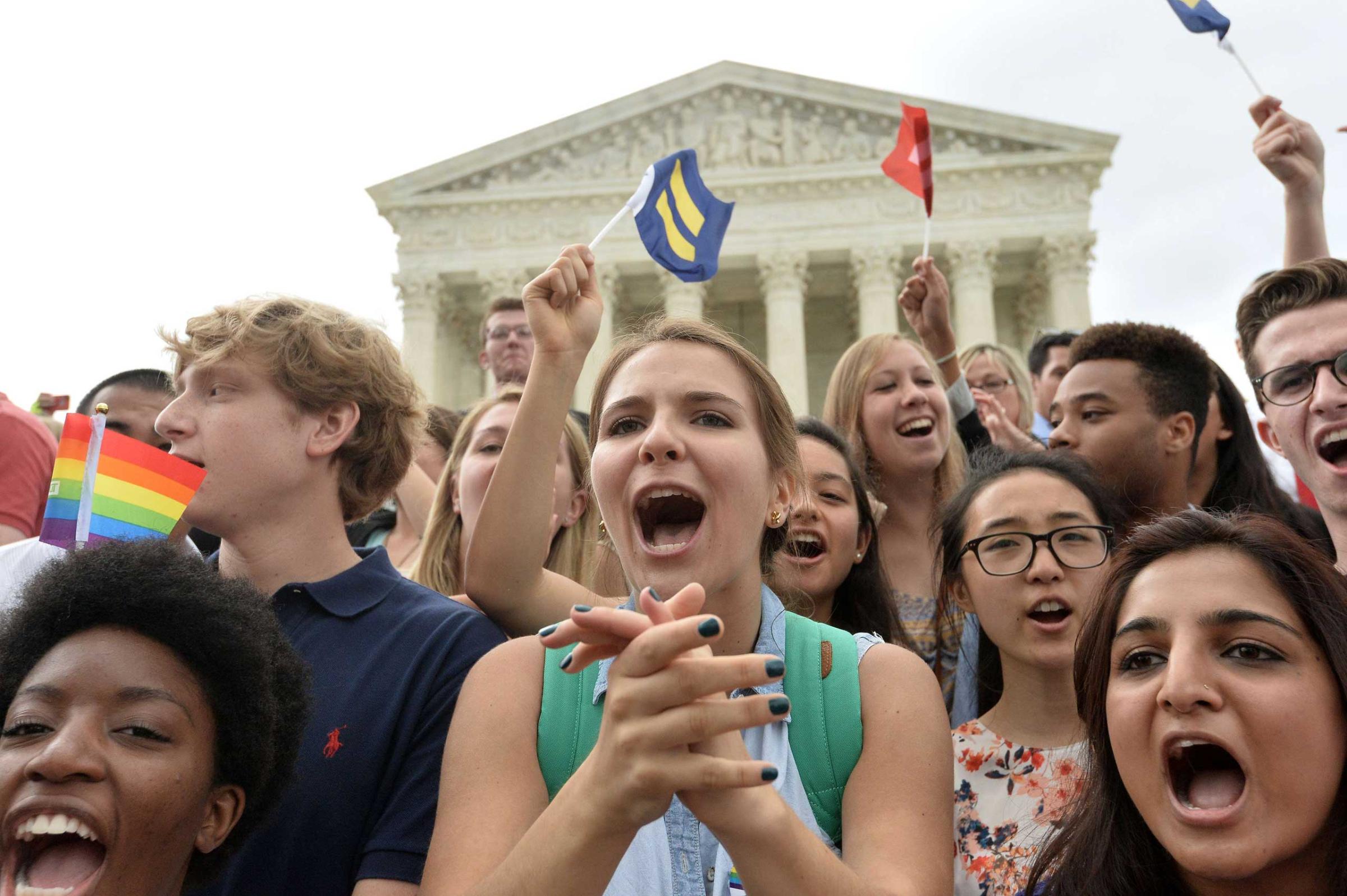
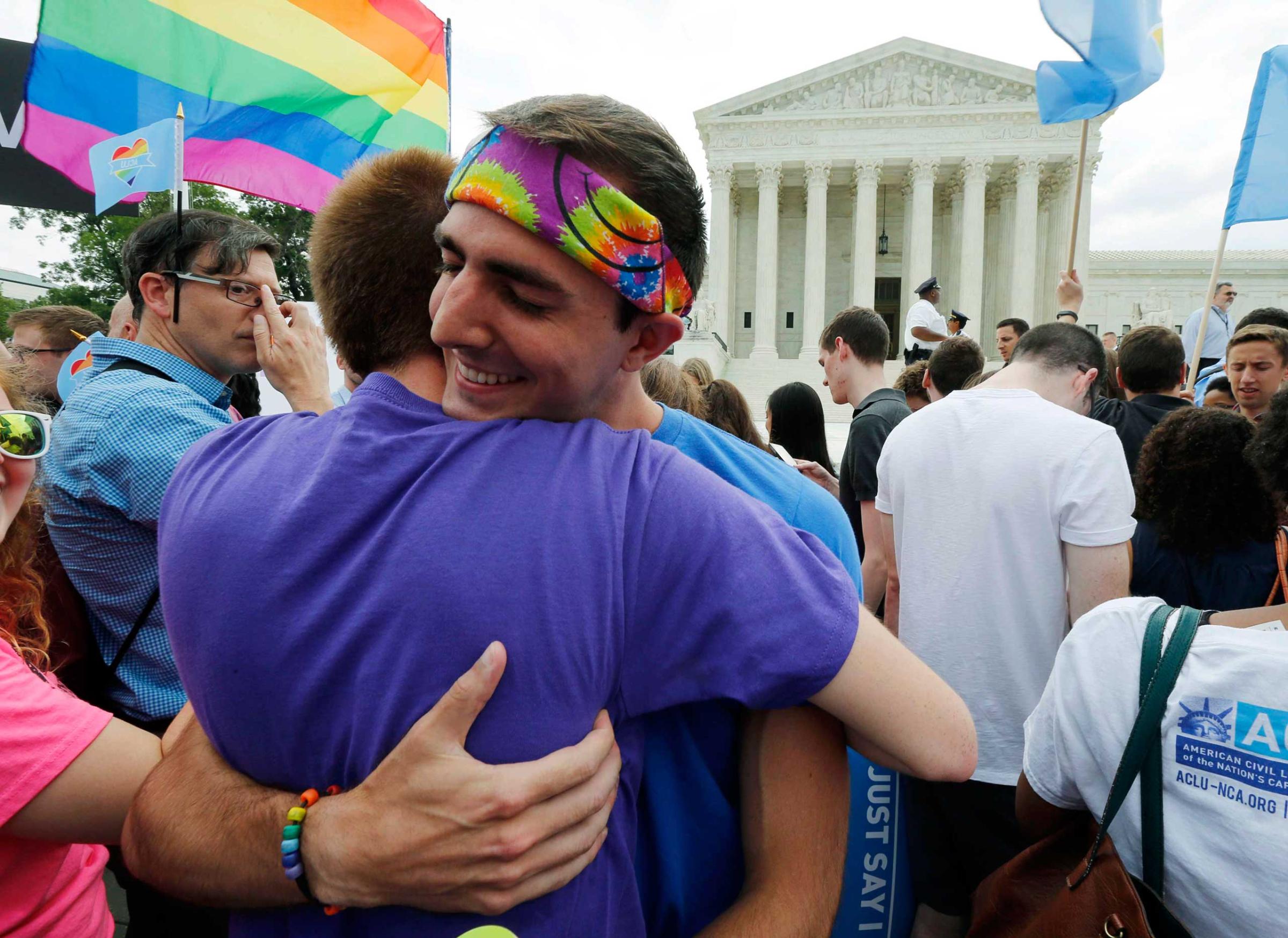
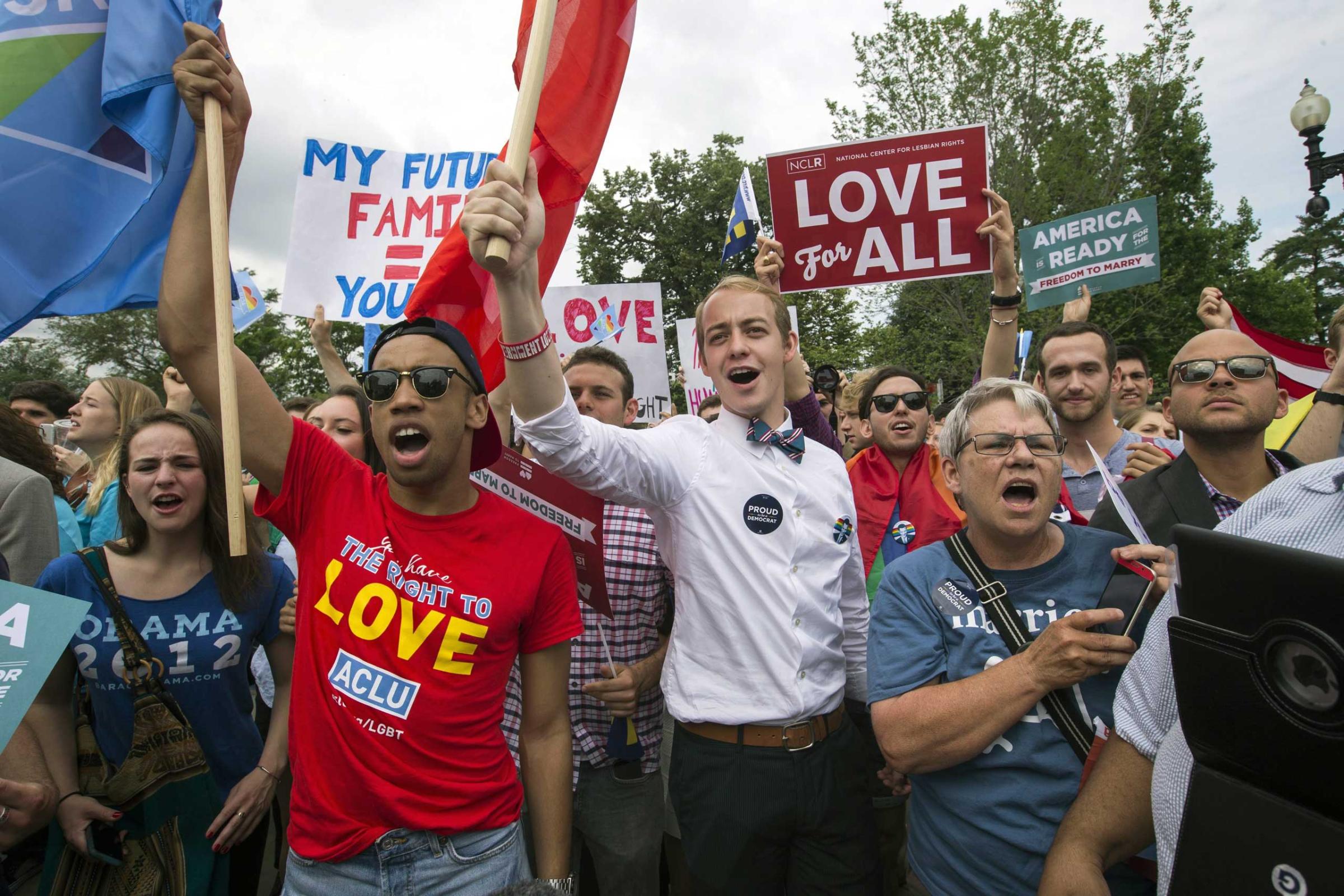
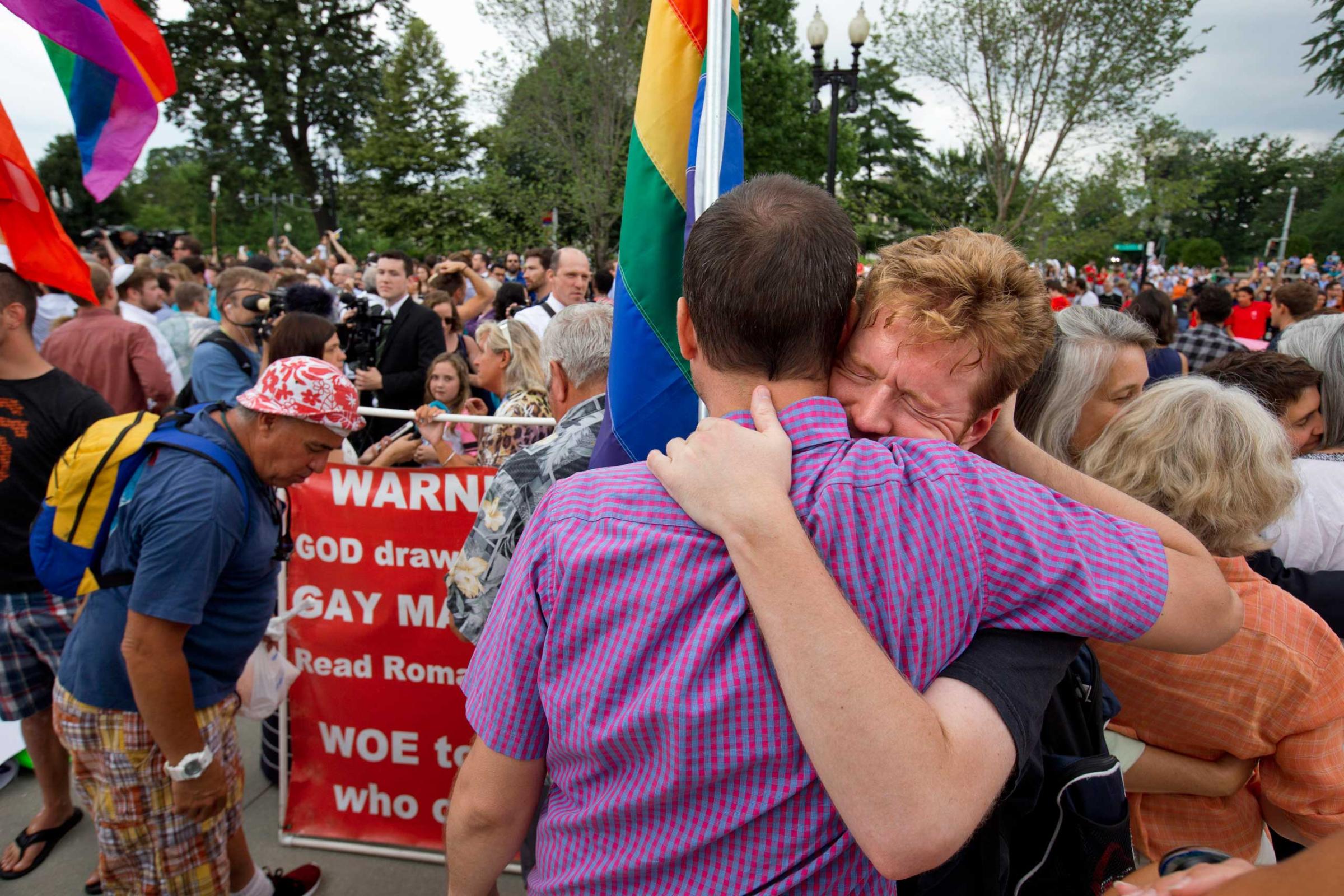
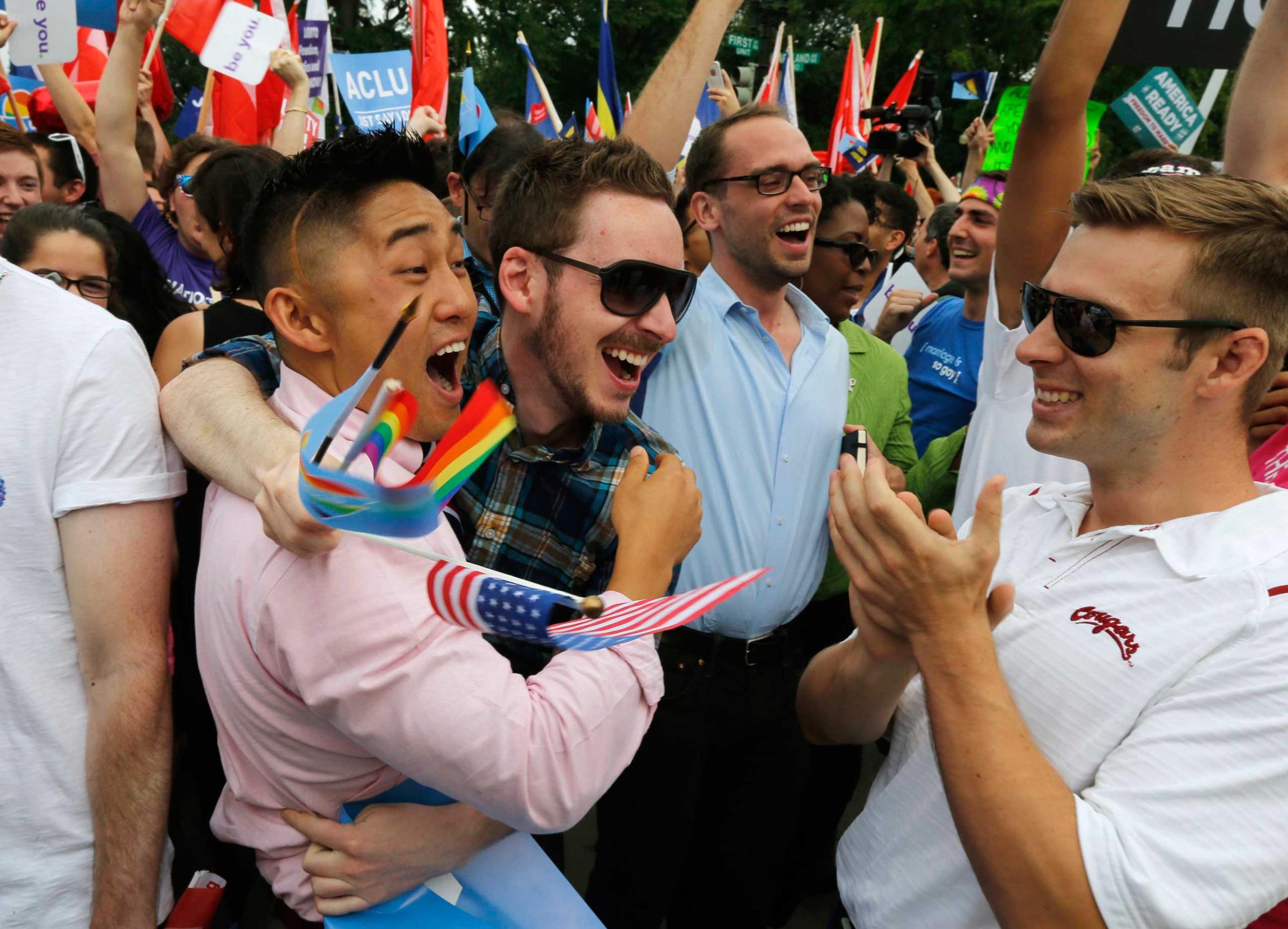
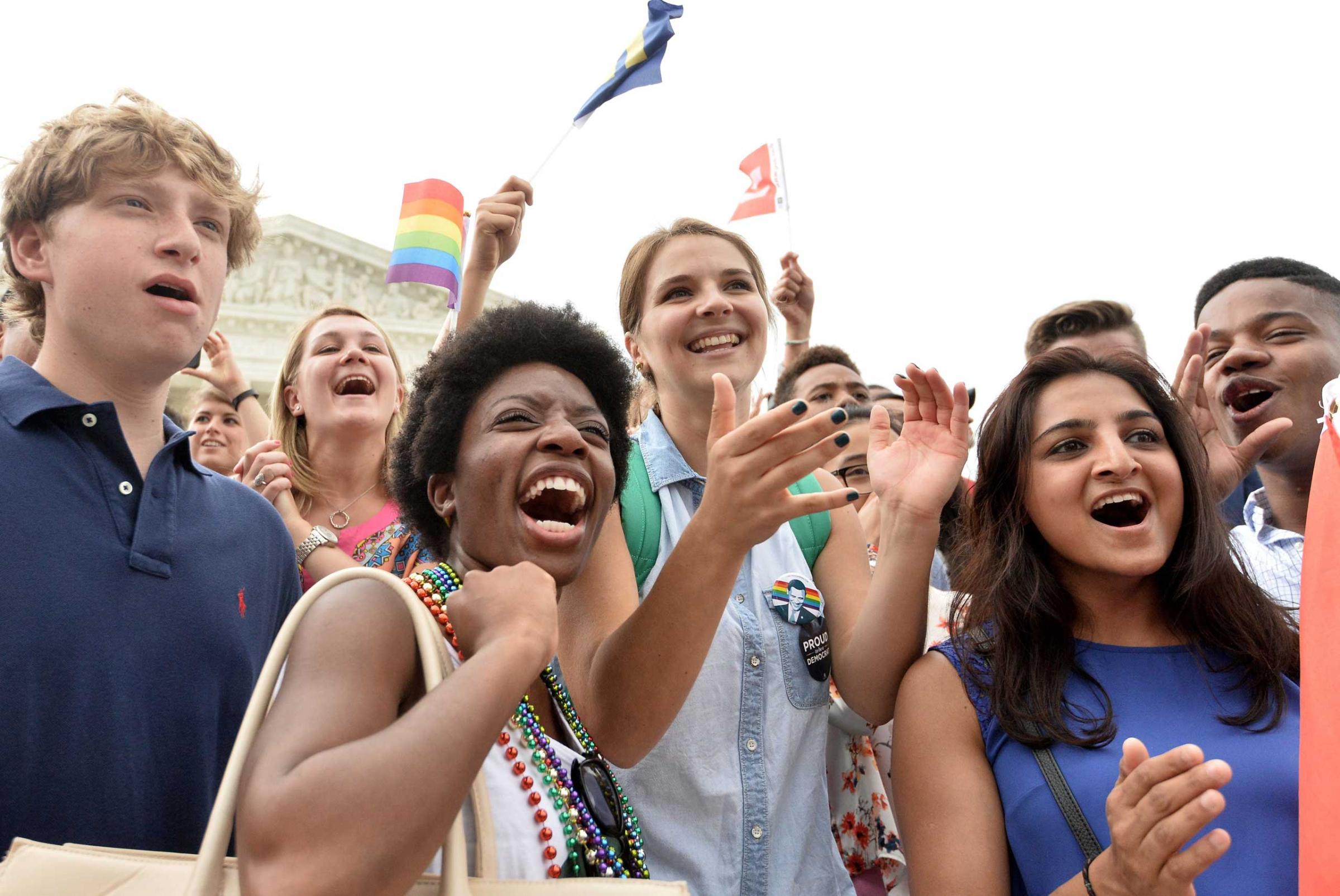
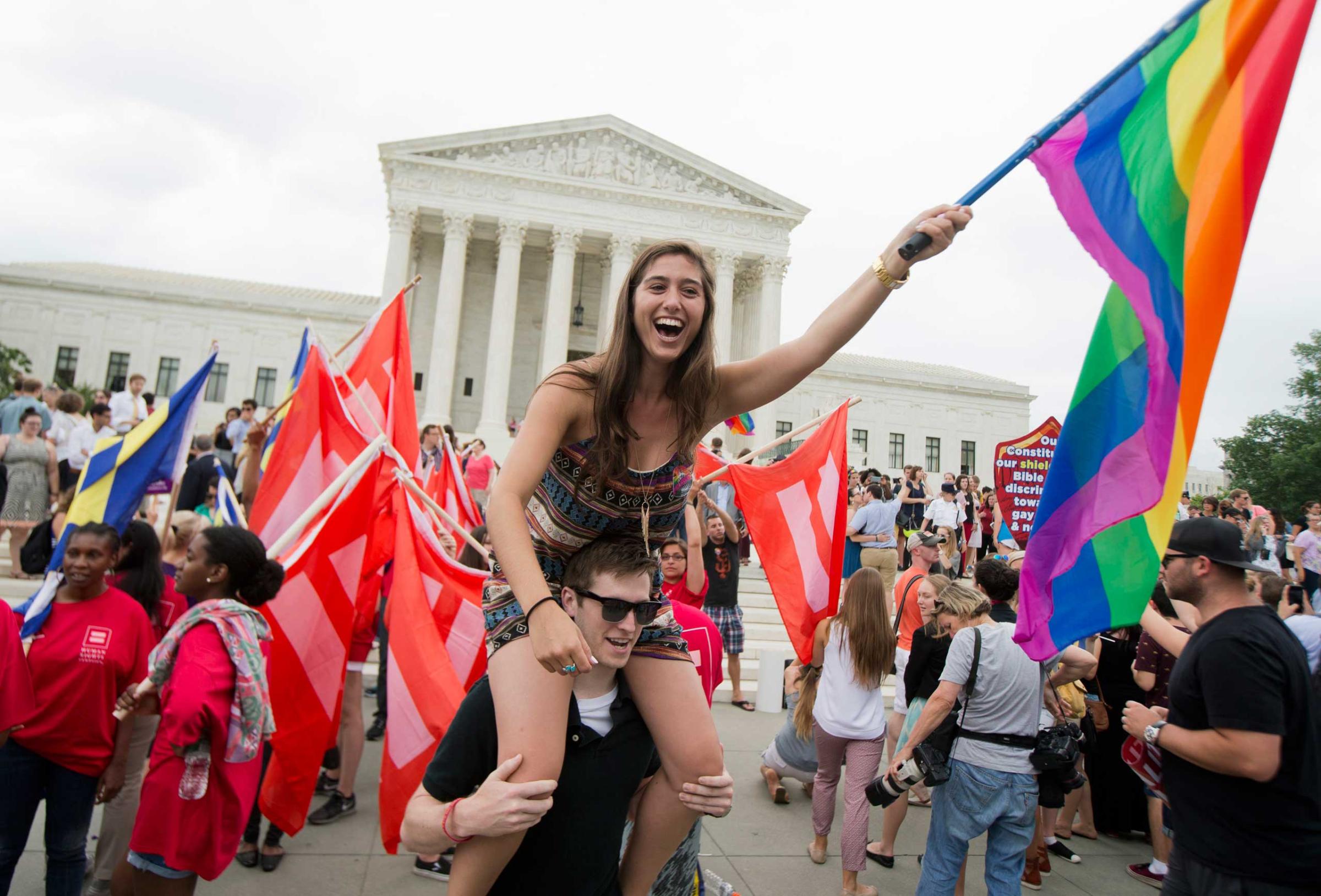
More Must-Reads from TIME
- Cybersecurity Experts Are Sounding the Alarm on DOGE
- Meet the 2025 Women of the Year
- The Harsh Truth About Disability Inclusion
- Why Do More Young Adults Have Cancer?
- Colman Domingo Leads With Radical Love
- How to Get Better at Doing Things Alone
- Michelle Zauner Stares Down the Darkness
Contact us at letters@time.com